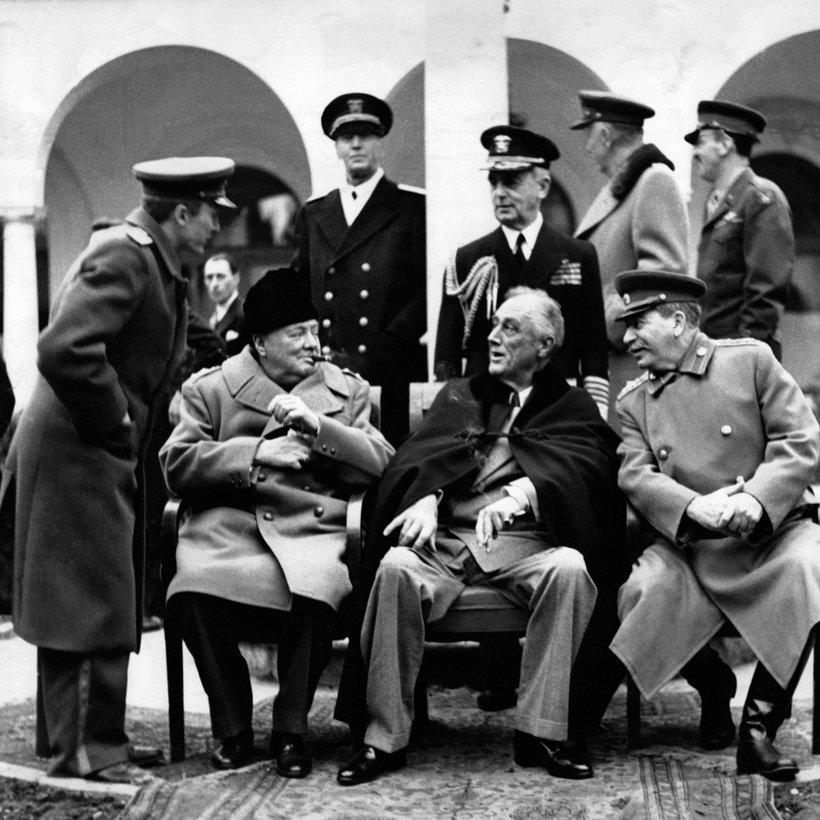“No more let us falter! From Malta to Yalta! Let nobody alter!” So wrote Winston Churchill to Franklin Roosevelt on New Year’s Day, 1945. As so often with the British prime minister, humor disguised his earnestness. In trying to arrange the second meeting of the “Big Three” Allied leaders—Roosevelt, Stalin, and himself—Churchill had found the American president less than helpful. The purpose of the conference was nothing short of deciding the future of the postwar world, and yet F.D.R. originally said that he could spare no more than five or six days for the summit. Churchill was appalled. “I do not see any … way of realising our hopes about world organization in five or six days,” he cabled the president. “Even the Almighty took seven.”
The Yalta Conference of February 1945 remains a subject of serious contention. Only the Munich Agreement seven years earlier, which granted Hitler a portion of Czechoslovakia, can surpass it for controversy. A meeting designed to ensure a new international order based on peace and security, it was followed by the subjugation of much of Eastern Europe and parts of far-east Asia by the Soviet Union. Could the Western powers have done more? Were the British and Americans somehow complicit in the descent of the Iron Curtain? Could the Cold War have been avoided? These are the questions which have haunted the name of Yalta ever since.


